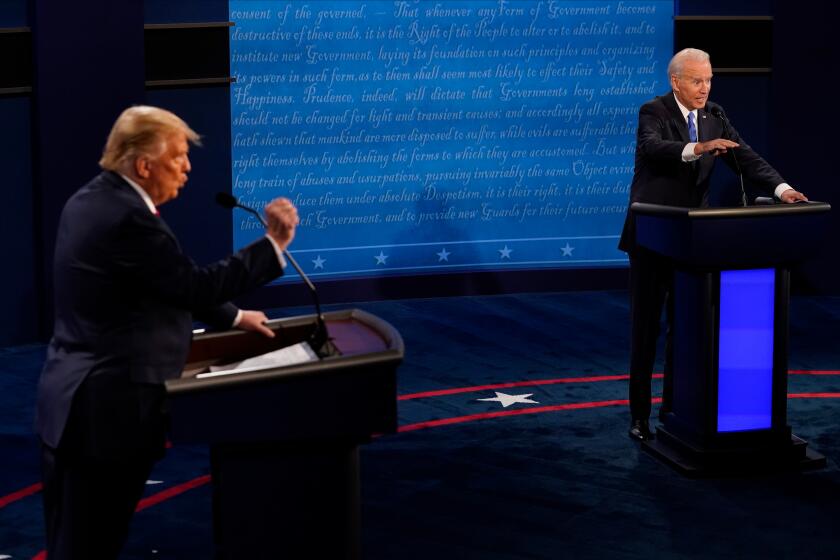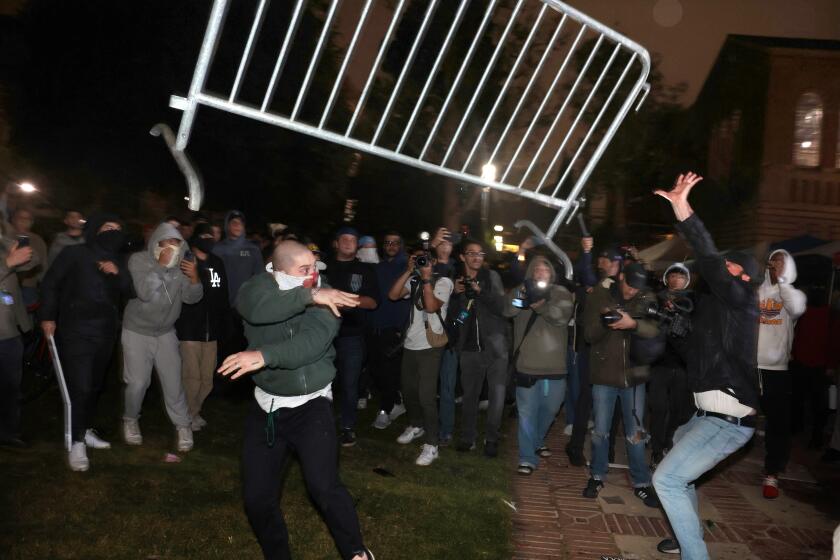Editorial: Yes, Los Angeles City Council, even charitable fundraising can be corrupt
Los Angeles’ philanthropic community must be in a sorry state.
Last month, the Los Angeles City Council considered a proposal that would ban elected officials from soliciting charitable donations from developers, lobbyists and companies with city contracts. It’s the second half of a major political reform effort that aims to stamp out the pay-to-play culture — whether real or perceived — that has dogged City Hall for years.
The council appeared willing at the meeting to move forward — finally! — on the first half of that effort: a long-stalled ordinance barring candidates from accepting campaign contributions from real estate developers with projects needing city approval. But council members reacted with alarm, skepticism and even downright hostility to the idea of reining in “behested payments,” which are charitable donations made at politicians’ request.
To hear some council members tell it, if they were no longer allowed to solicit contributions from (or to put it more plainly, to shake down) lobbyists, city contractors and developers to fund their favorite nonprofits, then charitable giving would practically dry up. Some community groups also raised concern that they couldn’t raise as much money without their council members drumming up behested payments. Transactional politics are, apparently, the lifeblood of philanthropy.
It’s no secret that elected officials solicit contributions from companies and individuals with business in the city.
Councilman Greig Smith said the proposal would make it harder for elected officials to “use their status in the community to raise money for worthy organizations.” The head of a homeless services agency said politicians use their “personal gravitas” to support local groups.
Let’s be clear what council members’ “status” and “personal gravitas” really are. Their “status” is their vote and their power in City Hall. Their “gravitas” is their ability to block projects or policies they dislike.
It’s no secret that elected officials solicit contributions from companies and individuals with business in the city — or that companies give heavily to local officials. Not to sound too cynical here, but it’s safe to assume fewer dollars would flow if donors did not believe that the money helps them get their projects approved or favorable policies adopted.
Whether it’s a campaign donation or a behested contribution, the intent typically is to curry favor with an elected official. That’s why more than half of behested payments reported by L.A. politicians over the last five years came from donors with business before City Hall. Those are the people with the greatest incentive to say yes when council members urge them to give a few thousand dollars to charitable fundraisers in their districts.
Enter the Fray: First takes on the news of the minute »
Nothing in the current proposal would prevent civic-minded companies from donating to nonprofits or supporting community events on their own initiative. For the sake of their own reputations, they would still have a responsibility to be good neighbors and corporate citizens. Nor would the proposal stop elected officials from trying to help their favorite charity by making a broad appeal for donations via email or social media. Elected officials could still add their name to an invitation for a nonprofit’s annual fundraiser, and they could even call people and ask them donate — as long as they are not hitting up a source that the ordinance would place off-limits, such as a lobbyist or developer with an application pending before the city.
The ban isn’t designed to curb charitable giving; it’s supposed to help lift the cloud of pay-to-play politics in City Hall, which is already under investigation for possible corruption. Last year, FBI agents raided the offices and home of Councilman Jose Huizar. The Times reported that Huizar had personally asked companies that do business with the city to donate to a private high school that employed his wife as a fundraiser. He didn’t report any behested payments. A federal search warrant showed the probe went beyond Huizar, with investigators looking for information from multiple City Hall insiders, including Councilman Curren Price, current and former members of Mayor Eric Garcetti’s administration and a senior aide to Council President Herb Wesson.
Yes, banning behested payments from a select group of donors with business pending before City Hall probably would reduce donations to a few favored charities. However, the ban would be an important step toward removing the appearance of quid pro quo city decision-making and restoring public trust in government.
Follow the Opinion section on Twitter @latimesopinion and Facebook
More to Read
A cure for the common opinion
Get thought-provoking perspectives with our weekly newsletter.
You may occasionally receive promotional content from the Los Angeles Times.





